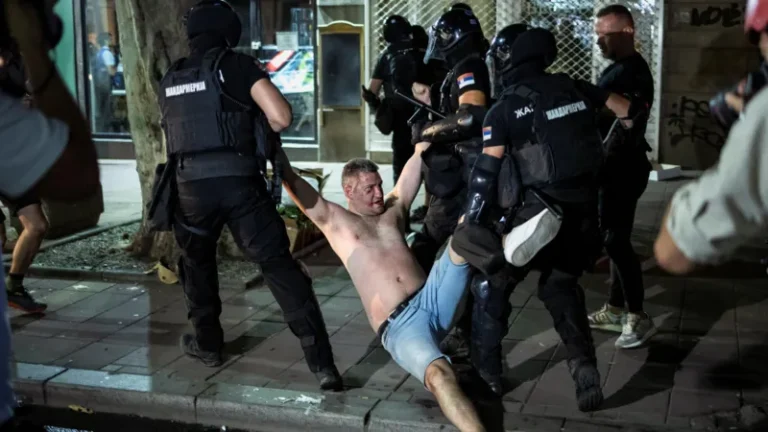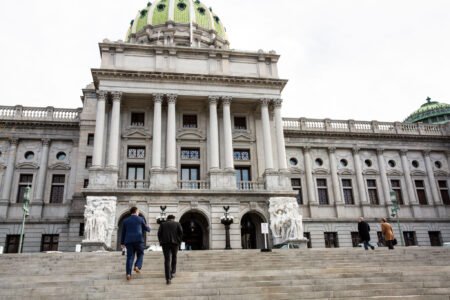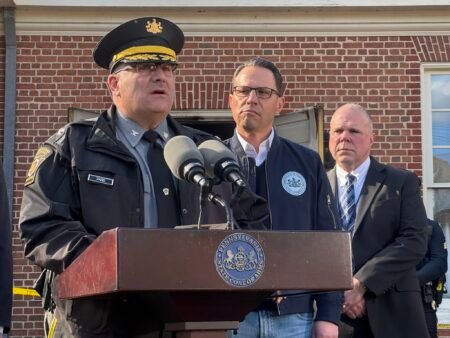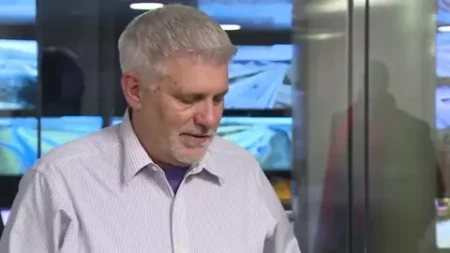Tens of thousands of protesters filled the streets of Belgrade, Serbia’s capital, on Saturday in the biggest anti-government rally in recent months. The protestors are calling for early elections and the resignation of President Aleksandar Vucic, who has ruled for over a decade.
More than 140,000 people participated in the demonstration, led largely by students. The protest was peaceful at first, but tensions escalated as riot police clashed with the crowd. Authorities fired tear gas and stun grenades. Several protesters were detained.
The crowd repeatedly chanted, “We want elections!” in a show of growing frustration with what they see as an authoritarian rule. Protesters accuse the current government of corruption, mismanagement, and cracking down on freedom of speech.
President Vucic, however, dismissed the protest as part of a foreign-backed plan to destabilize Serbia. On social media, he stated, “They wanted to topple Serbia, and they have failed.”
The unrest reached a peak earlier this month after Serbia’s Higher Court confirmed the arrest of five people allegedly involved in a plan to overthrow the government. Officials say these arrests show that the protests are not entirely peaceful.
In response to the violence, Serbia’s police minister issued a statement condemning what he described as organized attacks on law enforcement. He promised that all individuals responsible would be brought to justice.
The country has witnessed ongoing unrest since December. Protests by students, teachers, workers, and farmers erupted after a deadly accident on November 1, when the roof of Novi Sad’s railway station collapsed, killing 16 people. Demonstrators believe corruption and poor oversight led to the tragedy. The former prime minister resigned soon after.
Protester Sladjana Lojanovic, a 37-year-old farmer from Sid, said she joined the rally to stand with the students. She voiced concerns about the state of national institutions and the lack of accountability in government. “There’s too much corruption. We need elections, but I don’t think Vucic will go peacefully,” she said.
Despite increasing public pressure, the president has ruled out calling early elections. Vucic’s Serbian Progressive Party (SNS) and its allies currently hold 156 of 250 seats in parliament, giving them a strong majority. Regular elections are scheduled for 2027, which is also when Vucic’s current term ends.
The president and his supporters deny all claims of corruption or links to organized crime. However, critics argue that media freedoms have been shrinking and opposition voices are being silenced. Vucic’s opponents say the government has become intolerant of dissent and often uses intimidation tactics.
Serbia’s international stance has also drawn criticism. The country maintains strong ties with Russia and has refused to join the Western sanctions imposed after Russia’s invasion of Ukraine. This has raised questions about Serbia’s commitment to democratic values, especially as it remains a candidate for European Union membership.
At the end of Saturday’s protest, organizers played a recorded message, encouraging citizens to stand firm in their demands for democracy. The message said, “Take freedom into your own hands,” and accused the government of allowing the crisis to escalate through inaction.
In a follow-up post on Instagram, protest leaders said the government had every opportunity to listen to the people and prevent violence. “Instead,” the message read, “they chose repression. Any further tension is their responsibility.”
Protesters vow to continue their demonstrations until their demands are met. Organizers have called for more gatherings in the coming weeks and urged people across Serbia to join the movement.
The scale of public participation shows deep dissatisfaction with the current administration. Observers say the protests may continue to grow unless the government opens dialogue or offers concessions.







